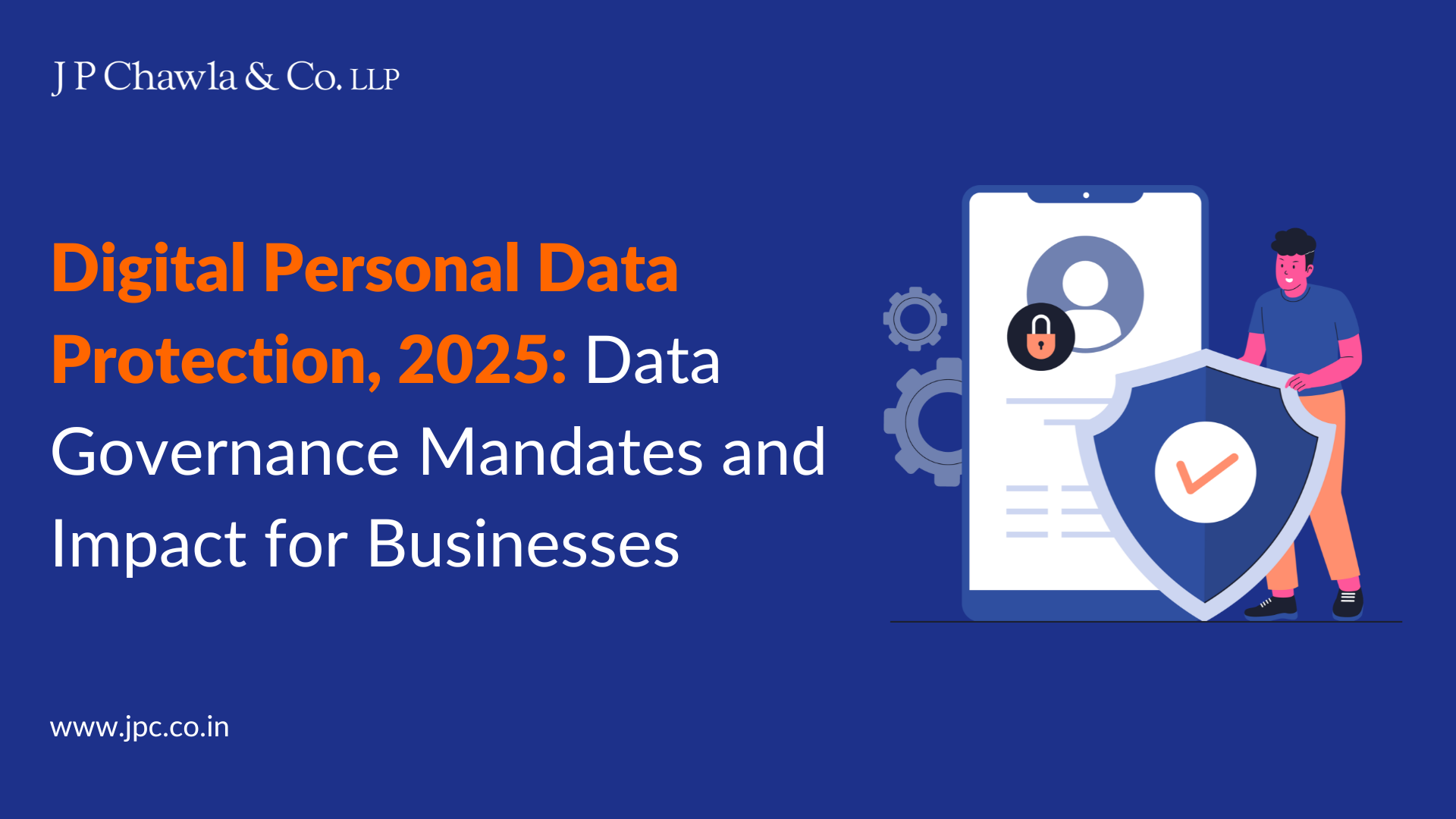- 20 November 2025
- Posted by: Admin
- Category: Legal & Regulation

On November 13, 2025, the Ministry of Economics and Information Technology (MeitY) officially notified the Digital Personal Data Protection Rules (DPDPR), 2025. The release, published by the Gazette on 14 November 2025, finally operationalizes the Digital Personal Data Protection ACT (DPDPA) marking this as a landmark principles-based, comprehensive data protection law in India.
The Act and Rules establish a citizen-focused and innovation-friendly framework for the responsible use of digital personal data. This new Rules comes after a wait of 10 months [introduced; 3 January 2025] and will change the way data is structured, enforced, with mechanisms for redressing data privacy issues.
The introduction of the Rules brings India closer to global standards of data privacy. A key provision is that it formalizes the Act and sets obligations for Data Fiduciaries and Data Principles. It also introduces the Consent Manager Framework (a uniquely Indian phenomenon), which acts as a critical intermediary to empower Data Principles.
Important Timelines of DPDPA

The implementation of DPDPA will take place in a staggered approach that extends to 18 months. This phased rollout is designed to give businesses significant time and breathing room to adjust their internal systems, IT policies, and establish enforcement mechanisms.
Consent, Notice, and User Autonomy Strengthened
The DPDP Rules emphasise clear, purpose-linked, and unbundled consent. A valid notice must give a “fair account” of processing activities; covering categories of personal data collected, purpose of processing, and a direct, accessible mechanism for withdrawing consent. This builds on global trends where regulators expect companies to shift away from vague or overly broad consent disclosures.
Businesses will need to rethink interface design, user journeys, and even product architecture to ensure that consent is truly informed, granular, and reversible; reflecting the Act’s core philosophy of individual autonomy.
A Higher Bar for Security Safeguards and Breach Response
The Rules mandate strong technical and organisational safeguards such as encryption, masking, obfuscation, and use of virtual tokens to prevent unauthorized access. These apply not only to Data Fiduciaries but also to all associated Data Processors, necessitating updated contracts containing robust security requirements.
- Furthermore, breach notification obligations are now among the strictest globally:
- Immediate intimation to the Data Protection Board
- A detailed breach report within 72 hours
- Direct notification to affected Data Principals “without delay”
Given penalties as high as INR 200 crore for reporting failures, companies will need round-the-clock incident response capabilities aligned with Indian time zones.
Data Retention, Erasure, and Lifecycle Governance
Borrowing from the principle of purpose limitation, the Rules make retention periods quantifiable for large Data Fiduciaries, especially e-commerce platforms, online gaming intermediaries, and social media companies. Personal data must be erased within three years of the Data Principal’s last engagement, unless required by law. Platforms must also retain logs for at least one year for investigative purposes and must provide 48-hour advance notices before erasure.
This will require automation of retention workflows, precise tagging of user interactions, and robust data lifecycle management—especially for businesses operating across multiple jurisdictions.
Introducing Consent Manager Framework: A Uniquely Indian Solution
Inspired by, but more advanced than, global models of consent intermediaries, the Consent Manager framework establishes an interoperable, government-registered ecosystem for managing user consent. Consent Managers must not subcontract obligations and cannot read the data being processed, ensuring independence and user trust.
Companies may soon find themselves integrating with these platforms to streamline consent management; similar to how UPI or account aggregators transformed finance.
Significant Data Fiduciaries: Added Scrutiny for Large Processors
The government may designate entities as SDFs based on the volume or sensitivity of data processed. Such entities must undergo:
- Annual Data Protection Impact Assessments (DPIA)
- Annual independent audits
- Ongoing algorithmic due diligence
- Additional data localization responsibilities for certain categories of personal data
This places India firmly in the league of jurisdictions demanding higher accountability from large digital platforms, while leaving room for sector-specific clarity.
Cross-Border Transfers: Liberal with Caution
India adopts a “blacklist approach”, allowing global data flows unless a country or entity is explicitly restricted by government notification. This stands in contrast to GDPR’s adequacy-based system and offers operational ease for international businesses; until any prohibitive list is released.
Child Data, Disability Data, and Special Protections
Processing child data requires verifiable parental consent, and platforms must implement measures to ensure legitimate verification. Ed-tech, gaming, and social platforms will face significant UI/UX redesigns for age-gating and guardian verification. Limited exemptions exist for health and safety-related processing by certain institutions.
Broader Economic and Governance Implications for Businesses
India is balancing economic goals with citizen protection, ensuring that digital innovation continues without compromising safety. Bar & Bench highlights the Act and Rules as part of a larger push toward global digital harmonization and trust-building, especially in cross-border contexts. The JSA insights underscore the operational challenges ahead: companies will need cross-functional compliance strategies involving IT, legal, cybersecurity, and product teams.
Ultimately, the DPDP Rules are designed to represent an upgrade in how businesses handle data, build trust, and design digital experiences.
Conclusion
India’s Digital Personal Data Protection Rules, 2025 operationalise a transformative privacy regime that will reshape data governance for years to come. From consent and security to retention, cross-border transfers, and specialized compliance for Significant Data Fiduciaries, the rules demand both strategic foresight and practical readiness.
With phased timelines extending to 2027, now is the time for businesses to build governance frameworks, assess risks, redesign product workflows, and prepare for a new era of accountability and transparency.
The future of data protection in India is here, and it is structured, enforceable, and firmly rights centric.
